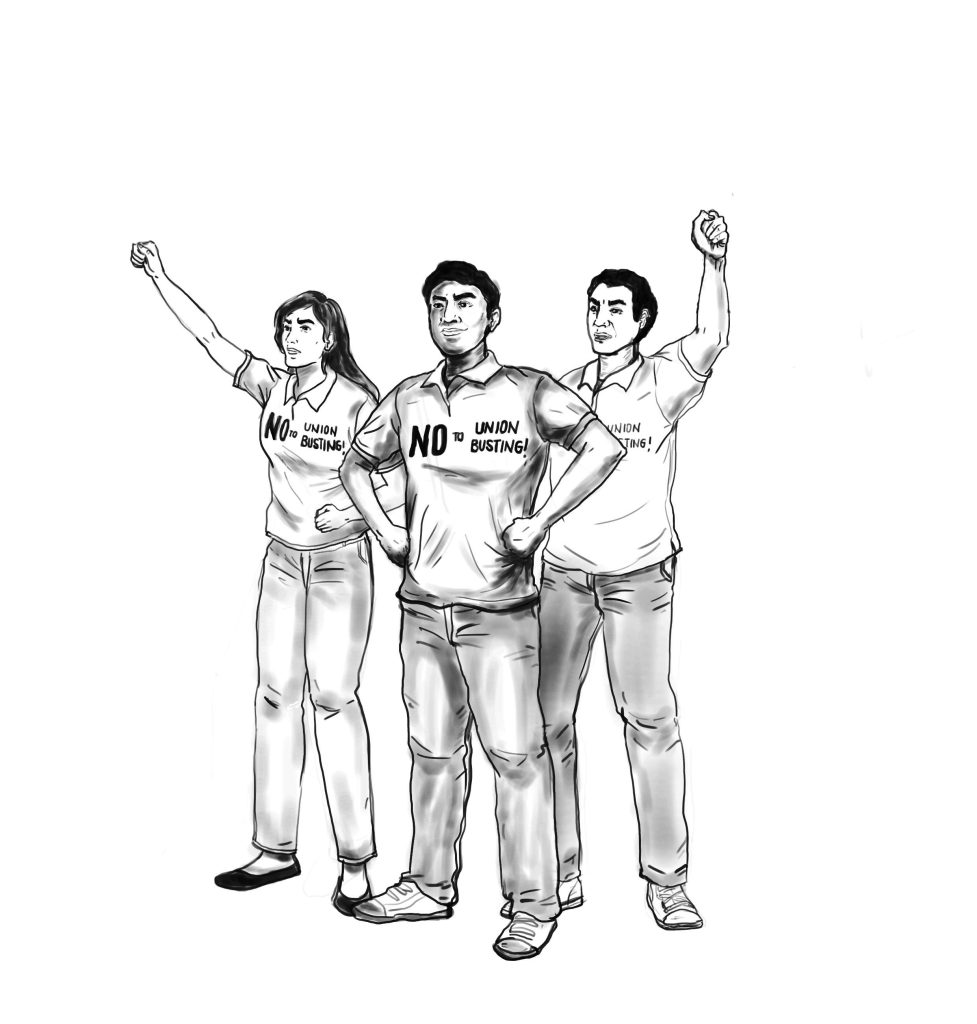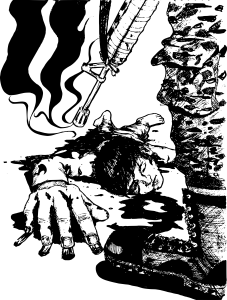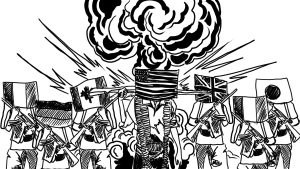Workers fight back: Defense against Wyeth's union busting


In the 64 years of the union’s existence at Wyeth, capitalists have devised various schemes to reclaim the workers’ hard-won benefits. The Wyeth Philippines Progressive Workers’ Union (WPPWU) has become one of the models among workers in the country because of the extent of its achievements in its fight for additional wages, benefits and regularization. In fact, prior to the layoff of 140 workers on May 18, it gained the regularization of 30 contractual workers.
According to WPPWU president Debie Faigmani, talk of factory layoffs have been circulated prompting them to seek a dialogue with the company. The management refused the request and instead, closed the factory on May 15-17 purportedly for “extensive cleaning.” When they came to work on May 18, they were barred at the gates, denied entry, and only granted audience after the union insisted on a dialogue. Only then did the management announced the dismissal of 140 workers. Among them are 125 are rank-and-file (including 10 union officers), 14 are supervisors and a manager.
Nestlé purchase and series of illegal layoffs
Wyeth Nutrition Inc. Philippines is a company that produces infant and child milk such as Bonakid, Promil, Bonamil and S26. Wyeth Philippines started in 1964 in Makati City as the first milk plant in the Philippines. In 1992, its factory was moved to Canlubang, Laguna for its capitalists to exploit state policies such as contractualization laid down by the Herrera Law and Wage Rationalization that set a lower minimum wage in Region IV.
In 2009, workers were laid off en massé when the American company Pfizer bought Wyeth Nutrition in 2009. Up to 7,000 workers were laid off from Pfizer and Wyeth factories worldwide. The WPPWU fought back with more than 20 picket protests to defend the company jobs of workers and defend the union’s previous gains.
In 2012, Nestlé bought from Pfizer its entire Nutrition Division for $11.85 billion. It was touted as Nestlé’s largest purchase of a single company in its history. With this purchase, Nestlé monopolized 85% of the market share of infant formula milk held by Wyeth. For example in China, Nestlé only has a 4% share of formula milk sales compared to Pfizer’s 8% share. China is now Nestlé’s second largest market in the world, and the Philippines is seventh.
Amid the economic crisis caused by the widespread lockdown, Nestlé remained one of the largest corporations in the Philippines in 2021. It has ₱134.2 billion in total revenue and ₱133.9 in net sales. Its revenue grew further in 2022 to ₱164.4 billion.
Layoffs as a ploy for union busting
The May 18 layoffs event was the third in the series of mass layoffs that workers faced since Nestlé bought the company. In 2014, 87 contractual workers were terminated despite having worked for the company for an average of eight years. In 2021, the company laid off 21 regular workers.
“We are aware of Nestlé’s reputation as a violator of labor laws, of not honoring agreements and CBAs, of violently breaking strikes, and of killing labor leaders. It earns billions every year, but greed emboldens them to jeopardize the lives of hundreds of workers and their families,” said Kilusang Mayo Uno chair Bong Labog.
Nestlé is notorious worldwide for violations labor rights. In fact, Nestlé has already killed two union leaders in the country and many others in South America.
Workers clearly know that the purpose of the illegal layoffs is to crush the union. According to Romy, one of the dismissed union officials in 2021: “That’s a significant step because they want to increase the profit. When the number of regular workers decreases and is replaced by contractuals, it means that the company’s profit will magnify because the wages of the contractual workers are lower compared to regular workers.”
(On the initial estimate of workers in 2019, despite being paid far above the minimum wage in Region 4-A, the rate of exploitation against Wyeth workers still reaches 800%. The daily wages they receive is equivalent to merely one hour and six minutes of factory work. The surplus value they create in the remaining six hours and 54 minutes of work already counts as Wyeth-Nestlé’s profit.)
Crucial struggle
For the WPPWU, the capitalists may simply be using them as a model for an even stronger attack against the entire labor movement. Therefore, this fight is significant because beyond just their family’s livelihood, this is a fight for their fellow workers.
Faigmani added, “they didn’t scare us at all by firing us, now that they fired us, we have no other recourse but fight for our rights.”









